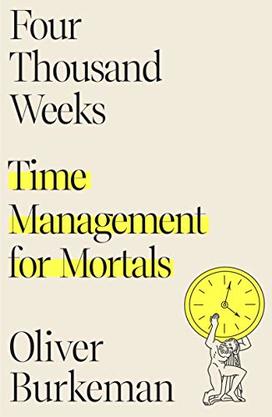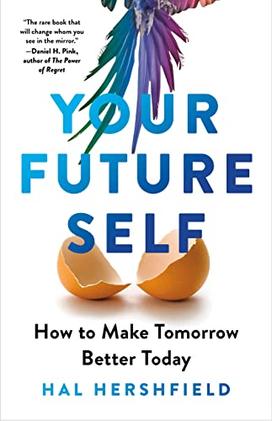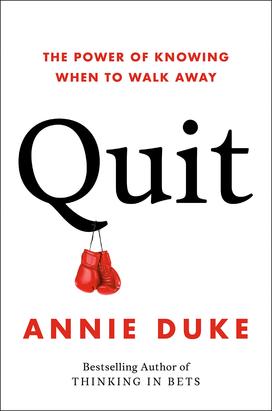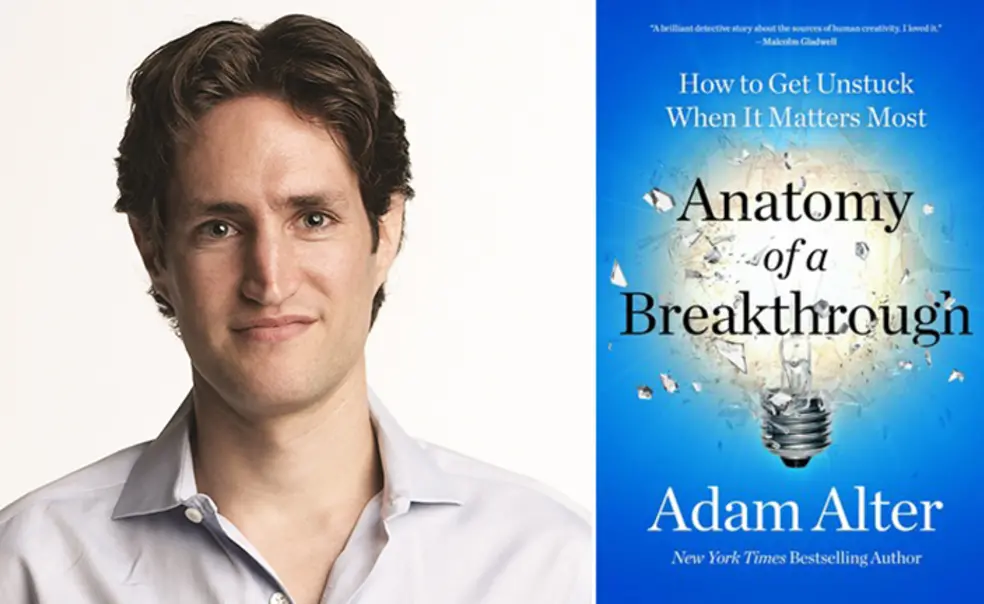Adam Alter *09 on Books to Help You Thrive
Adam Alter *09 is a professor of marketing in NYU’s Stern School of Business who also holds an affiliated professorship in social psychology. He’s the author of three books and the giver of this TED Talk about the psychology of tech addiction. In his latest book, Anatomy of a Breakthrough: How to Get Unstuck When It Matters Most, he explains how and why people get stuck with writer’s block or trapped in a thankless job or a midlife crisis. Then he offers a roadmap for how to overcome that inertia, move forward, and thrive. PAW asked Alter to recommend three more books for readers, and he suggested these.

Four Thousand Weeks: Time Management for Mortals
By Oliver Burkeman
My favorite book on “productivity” and time management. There are hundreds of books telling you how to do more in the limited time you have, but only 4,000 Weeks tells you that framing your life as an ongoing to-do list is futile. You’ll never complete everything on that list, and the act of trying will make you less happy, less productive, and less inclined to focus on what really matters in life. I also recommend Burkeman’s The Antidote, which does for books on happiness what 4,000 Weeks does for books on productivity: It turns them on their head and asks whether the questions they seek to answer make sense at all.

Your Future Self: How to Make Tomorrow Better Today
By Hal Hershfield
Most work on thriving prioritizes the here and now, or at least assumes that the here and now matters. Your Future Self is a book about balancing the present and the future so that you maximize your welfare across the lifespan. The book is based largely in Hershfield’s pioneering research on how people perceive themselves across time, and how those perceptions push them away from saving for retirement, exercising to ensure they remain strong as they age, and eating well today to prevent health problems later. The book is as fascinating as it is practically useful.

Quit: The Power of Knowing When to Walk Away
By Annie Duke
In Anatomy of a Breakthrough, I argue in favor of continuing past the point where you feel you’d like to quit. Duke makes the case that quitting is very often the right move. Humans can spend their time on an almost endless array of pursuits, and Duke suggests that quitting and moving on when an experience isn’t as rewarding as it should be almost always makes sense. Surely, by the economics of opportunity cost, we’re leaving better options on the table if we spend much of the time slogging through the options we’ve chosen. A great companion to the many books that implore us to be gritty and stubborn in the face of obstacles.












No responses yet